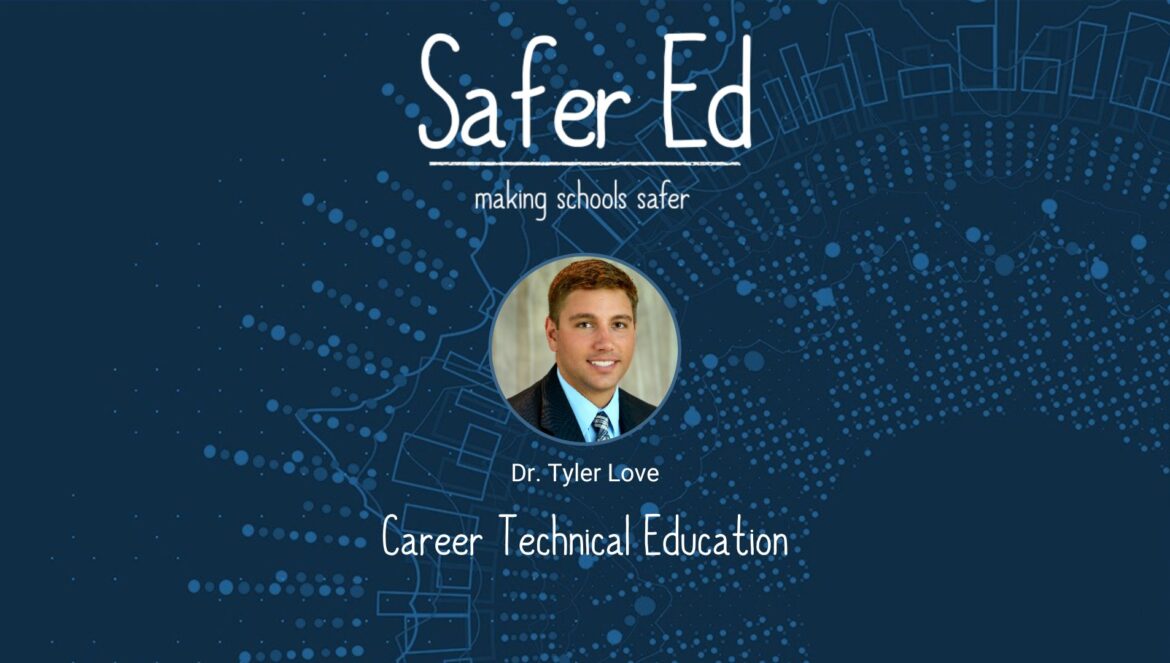Table of Contents
For this episode, special guest Dr. Tyler Love joins us to discuss safety in career technical education (CTE) programs. This episode explores how schools can support students’ interests in STEAM careers and keep them as safe as possible.
Professional Development in Career Technical Education
The conversation begins by exploring Tyler’s role in the career technical world and the challenges of implementing safety standards in CTE environments. Tyler has researched and worked with teachers to train and develop them to lead CTE programs. As he explains, teachers come from many different backgrounds and expertise in science, engineering, technology, etc. With the regulations and better professional practices of the Science laboratories, most science teachers can transition into these roles with minimum training. However, that is not usually the case.
As the research shows, many teachers are not prepared with the safety background that is required to run a CTE Lab/MakerSpace. Most teachers’ background with CTE is business or personal finance. However, as more states make Engineering and Technology a prerequisite for graduation, these CTE teachers are somewhat unprepared for the safety and rigor that students need in STEAM career technical environments. As Tyler explains, these teachers need professional development to keep CTE environments safer.
Running CTE With Minimum Funding
Tyler discusses that other than professional development, funding and the teacher shortage are two main factors challenging the safety of CTE environments.
The issue with occupancy load is the cost factor, we have a teacher shortage now, we need to find somewhere to put students if we keep the [classrooms] to 24. If we don’t have enough teachers, where are going to put these students? If I could tell administrators anything, I would say, at a minimum appropriate PPE [is essential].
In several studies explored in this conversation, Tyler shows that many educational spaces are not prepared with the correct personal protective equipment that students need to be safe. Tyler is not trying to shame people with this research. He is trying to give them resources to understand the importance of safety regulations and standards and their direct impact on student health and learning.
Everyday Safety & The Impact of Research
In the second part of the episode, Tyler focuses on the details of safety training and how it impacts everyday teaching. One interesting aspect of this part of the conversation is Tyler’s research on Engineering and CTE training.
What you expect of a STEM classroom or CTE laboratory is not always what the data shows, particularly concerning safety. As Tyler points out, the most hazardous piece of equipment nationally (based on the highest rate of incidents) is a hot glue gun, with the second being hand tools.
Overall, Tyler’s work is focused on putting data and information into educators’ hands. Data and research on safety practices efficacy, occupancy, use of tools, teacher training, etc., are essential because they establish a baseline for change. The hope is that this research will cause more comprehensive safety training and reduce accidents in the classroom.
Comprehensive Safety Training in the Career Technical Classroom
The episode ends with a discussion on comprehensive safety training. In his research, Tyler found that comprehensive training leads to lower rates of incident in CTE environments. Essentially, teachers receive training in undergraduate and upon their initial hiring in a school. Once that is complete, there should be a refresher course every year. As Dr. Love’s work shows, if an educator has all three of those training modules with at least one refresher training every 5 years, incidents were decreased by 49%.
This conversation shows how essential it is to establish safety standards in the CTE Classroom. MakerSpaces, engineering labs, and technology learning are essential for students nationwide to learn and grow in the fields of the future. However, if these environments are not held to high safety scrutiny, they will not provide the level of learning necessary.
Subscribe to edCircuit to stay up to date on all of our shows, podcasts, news, and thought leadership articles.





